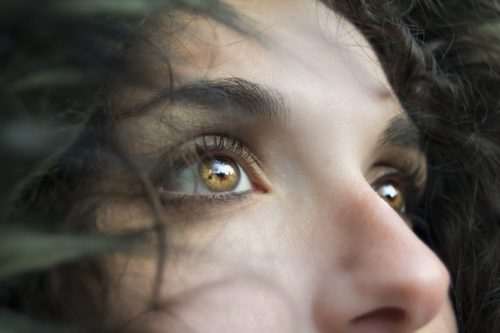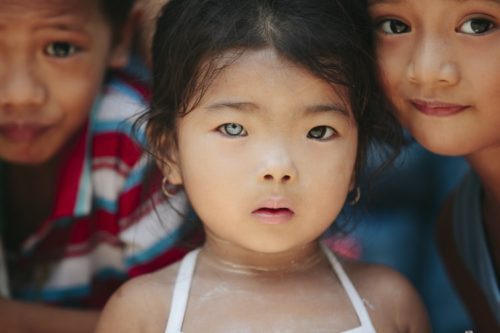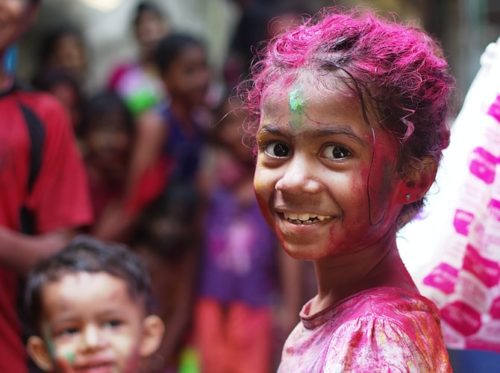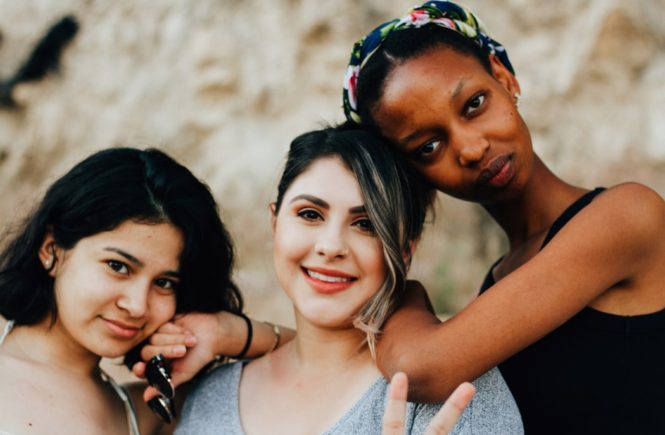We’re obsessed with outward appearances; putting people in neat, little subcatagories, based on race, gender and disabilities.
Even age, socio-economic status’ and regions people live in, can be justifications for us to box up and divide, segregate and separate.
But God came to bring life and life abundantly, not just for some, but for all people.
Samaria was a region few passed through. The people who lived there were of mixed decendent, both Jew and Assyrian.
The Assyrians were also black. So, Samarians were multiracial and lived segregated and separated from other cultures, even until today.
Yet, Jesus didn’t dismiss Samarians, like most did. In fact, He made a point to go through Samaria, when it would have been easier to avoid this region. (John 4)
There, Jesus touched a woman at the well and she became the first evangelists, pointing her entire town to Jesus.
She also happens to be a woman.
Jesus didn’t segregate by rake or ethnicity. In fact, it almost seemed like He went after those others ignored, despised or discounted. (i.e. fishermen and tax collectors)
And yet today, so many place casts on people, ranking, positioning others based on wealth, appearance, or the color of one another’s skin.
 It’s one of the first things I taught, as a Preschool teacher. Catagorize lego’s, or blocks, or pictures, red on one side, blue on another.
It’s one of the first things I taught, as a Preschool teacher. Catagorize lego’s, or blocks, or pictures, red on one side, blue on another.
Today, I am teaching my seven-year-old how to link pictures with the words catagorizing each object. For example how to identify and separate all the roots, seeds, flowers, and vegatables in their own separate boxes.
But are kids born to catagorize, divide, rank and segregate?
I had two foster children in our home at one time. They both were close to the same age, four and five. One was Islander and the other African American.
Same age, same history, they instantly became best friends.
Did they point out the different colors of their skin? Did they rank eachother because of who was darker, who was lighter? No.
In fact, race never came up. They never talked about who had the curliest hair, their different features or anything about their external appearance.
Plus, they were different genders. Did that matter? No.
Yet, as we get older, we teach kids to catagories sub-cultures to fit our rational thinking.
One might say kids are “color blind”. Yet, why aren’t we?
I have seen this kind of color blindness over and over again, in numerous settings. The most prolific example being when I was a teacher of hundreds of pre-school children.
Class after class I taught, there were children with different skin tones, different outward appearances; some with glasses, some taller or skinner, others wider and those even unusual in appearance.
Did these kids divide into colors or appearances? No. Did the kids with glasses all play together? Or those who were taller and blonder all cling to a group as if their life depended upon it.
Absolutely, not.
In fact, maybe you can remember examples of when you were little and kids just all played together?
Childhood friends, pre-school age experiences where people were just people, not black or white or judged by anything seen?
So, why do we teach over and over, until our brains our sore, about the need to segregate cultures and people, skin colors and outward appearances?
Do certain groups get power when they point out color or differences? Do some feel superior and others  become lower when we rank ourselves according to the color of our skin?
become lower when we rank ourselves according to the color of our skin?
My home is multi-cultural. We have a Hispanic , African American, Somoans, mix raced children and white.
Yet, do we see eachother based on melanin? No. Do we divide and segregate, bait and degrade some of us because our skin might look different? Never.
We are a family. Just as much as anyone else who might have a family with all the same skin tones.
I thought this “Love doesn’t see color” thing was unique to us. But, I was talking to my friend the other day and she apologized. I didn’t know where the conversation is going…
Then, she went on….
“I am sorry, but when I look at your family, I just an amazing family who I love. I don’t see or even notice you all have different skin colors.”
Some might think it is racist to be blinded to color, by love. But, I wonder, if making color the central point of every division and conversation is more racist.
Others may say it is not politically correct to not segregate everybody. We need to value each individual and see each person first, as different.
And while we go to African American festivals to connect our black daughter to people who look like her. And place our other daughter in Hula, so she might embrace her Pacific Islander heritage…
We know, hearts and character shine brighter than any outward appearance.
Who we are on the inside matters most.
Morgan Freeman, the world renowned, black actor one said about how we stop racism, “Stop talking about it. I’m going to stop callig you a white man and I’m going to ask you to stop calling me a black man.”
Nelson Mandela had similar sentiments…
“It is not our diversity which divides us; it is not our ehtnictiy or religion or culture that divides us. Since we have achieved our freedom, there can only be one division among us; between those who cherish democracy and those who do not.”
Children are color blind. Jesus also seemed to be color blind.
In fact, Scripture tells us, “The Lord does not see as man sees. Man sees the outward appearance, but God sees the heart.” (1 Sam. 16:7)
Yet, in every education setting I have ever been in, I have been taught the need to centralize on color; focus, segragate and separate people according to outward appearances.
Like my seven-year-old separating flowers and roots, plants and blossoms….we too have been trained to catagorize each and every person we see.
But what if we were like younger children? The children in my classrooms? Pre-schoolers?
 What if we drew towards people, brown skin or light, glasses or wheelchair bound, not because they were different, but because they were humans, worthy of love and acceptance?
What if we drew towards people, brown skin or light, glasses or wheelchair bound, not because they were different, but because they were humans, worthy of love and acceptance?
What if we clung to the words of another world changer, Martin Luther King? He dreamed of a day where we would “judge people not by the color of their skin, but by the content of their character”?
How might we change? Culture change? Divisions and rankings, segregation and hate diminish?
Would we be a perfect people? No. This world would still have sin, without Jesus blood washing over us and setting us free.
But, would we be better? More loving? Would we live unified, seeing the inward beauty of one another without judging first by the color of ones skin?
I think so.
I am not going to lie. I want a utopia. Here. Now. In this world.
I’ll admit it. I want to live in a nation where we are blinded to skin tones, loving people because of what’s on someone’s inside.
And yet, a war continues to be birthed. A war where some people become saviors and other people the victims.
In Scripture, Luke 16: 19-31, Lazarus, a poor beggar, full of soars, lay at a rich man’s gate hoping for crumbs to feed him. Every day, the wealthy man, clothes in purple and fine line passed the beggar on the street.
When both men died, the rich man went to hell and the beggar went to heaven.
God’s Kingdom is an upside-down Kingdom. The last shall be first and the first, last. (Matt. 20:16)
One day, the playing ground will be evened. God will separate the goats and the sheep. (Matt 25:31-46)
And then, maybe it’s not what we all looke like, ut how well we love, give, serve, model the character of Christ.
Perhaps, then, it’s howwe love, that will matter most in HIS Kingdom.




